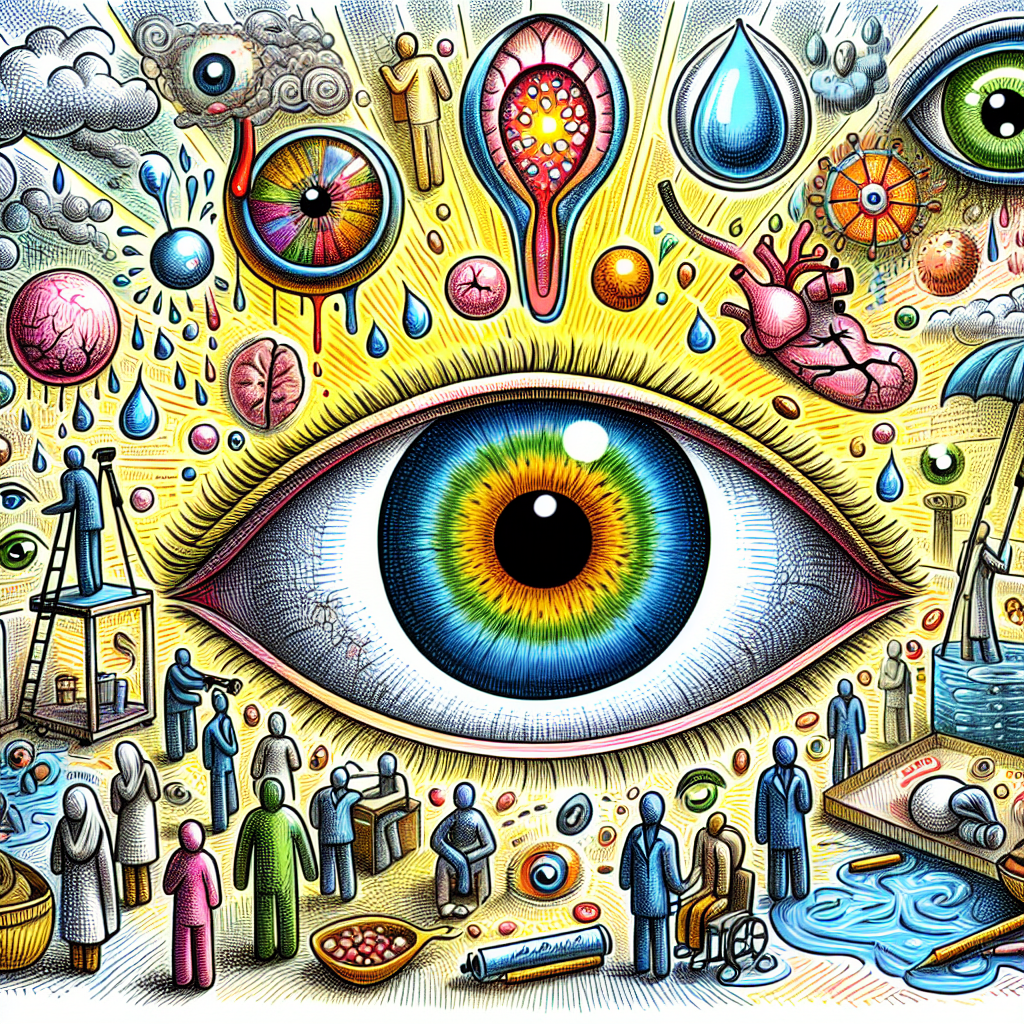Introduction
In the vast gallery of human senses, sight is the vibrant painting that captures the essence of our world. But what happens when this masterpiece begins to fade? The canvas of our vision can be compromised by more than just age or genetics; it can be affected by the unseen specters of nutritional deficiencies. Just as a painter needs the right palette to create brilliance, our eyes require specific nutrients to function at their best. Join us on this journey as we explore the vital role that vitamins and nutrients play in preserving one of our most cherished senses.
- The Role of Vitamins in Eye Health
- Key Nutrients for Maintaining Vision
- Recognizing Signs of Deficiency-related Vision Issues
- Preventive Measures for a Healthy Vision
- Conclusion
The Role of Vitamins in Eye Health
Imagine your eyes as a camera capturing life’s moments. Without the right lens, the image becomes blurred, less vibrant. Similarly, without adequate vitamins, our vision can deteriorate. Vitamins are not just an added bonus, they are the building blocks of healthy vision. These nutrients protect our eyes from damage, reduce inflammation, and improve overall eye function.
Vitamin A: The Guardian of the Night
Vitamin A is akin to the lighthouse keeper for our eyes, guiding us through darkness. This essential nutrient helps maintain night vision and prevents conditions like xerophthalmia, a severe dryness of the eye that can lead to blindness. Found abundantly in carrots and sweet potatoes, Vitamin A ensures our eyes stay moist and functional.
Vitamin B12: The Nerve Protector
Like the vigilant guardian of a fortress, Vitamin B12 protects the optic nerve from damage. A deficiency in this vitamin can lead to visual disturbances and even permanent vision loss if untreated. Sources like fish, meat, eggs, and dairy products are rich in Vitamin B12 and should be included in your diet to maintain optimal nerve health.
Omega-3 Fatty Acids: The Eye’s Lubricant
Omega-3 fatty acids are the oil that keeps the engine of your eyes running smoothly. They help reduce dry eye syndrome and macular degeneration. These fatty acids are found in abundance in fish oils and flaxseeds, ensuring that your eyes remain well-lubricated and free from irritation.
Key Nutrients for Maintaining Vision
Apart from these star players, other nutrients also contribute to eye health. Zinc, lutein, and zeaxanthin are crucial in protecting against age-related macular degeneration and cataracts. They act as a shield, filtering harmful blue light and preventing damage to the retina.
Recognizing Signs of Deficiency-related Vision Issues
Vision problems can often appear like uninvited guests at a party—unexpected and disruptive. Symptoms such as night blindness, blurred vision, or persistent eye fatigue can indicate a deficiency. It’s important to listen to your body’s whispers before they become shouts.
Preventive Measures for a Healthy Vision
A balanced diet is like a symphony for your body, where each nutrient plays its part to create harmony. Incorporate a rainbow of fruits and vegetables into your meals to ensure you’re getting a full spectrum of vitamins. Regular check-ups with an eye care professional can also catch deficiencies early, like spotting weeds in a garden before they overtake it.
Conclusion
The tapestry of vision is intricate and delicate, woven with threads of vitamins and nutrients that keep it intact. By understanding the role of these nutrients, we can take proactive steps to preserve our sight for years to come. In this age of information, ignorance is a choice we do not have to make. Keep your eyes wide open and nourished.
Key Takeaways
- Vitamin A is crucial for maintaining night vision and overall eye health.
- Vitamin B12 supports the optic nerve’s function.
- Omega-3 Fatty Acids help prevent dry eyes and macular degeneration.
- A balanced diet rich in various nutrients can prevent deficiency-related vision issues.
FAQ
1. Can a lack of vitamins cause permanent vision loss?
Yes, severe deficiencies in essential vitamins like Vitamin A and B12 can lead to serious conditions that may result in permanent vision loss if left untreated.
2. How can I tell if my eyesight issues are due to vitamin deficiency?
If you experience symptoms such as night blindness or persistent eye fatigue, it might be worth consulting with a healthcare professional to determine if a vitamin deficiency is at play.
3. What foods should I eat to support eye health?
Foods rich in Vitamins A (such as carrots), B12 (like fish and meat), and Omega-3s (including fish oils) are excellent for supporting eye health.
For more information on managing related health concerns like eye infections or styes, visit our detailed resources.
Additionally, check out these valuable guidelines from the National Eye Institute.











